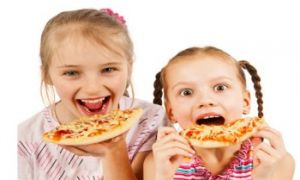Relationships with carers play a key role in determining a child’s well-being in the earliest years. They have the potential to impact only impact a child’s emotional and social development but also learning in school and later life outcomes. The following article provides information on Why Relationships Matter, Strategies To Implement When Building Relationships, Stages Of Social Development and more. However, for relationships to be meaningful, interactions need to be warm, caring and responsive.
Why Do Relationships Matter?
When infants and very young children experience secure attachment to their caregivers, they feel that their needs are worth responding to and this nurtures self-esteem. Also since secure attachment instils the core belief that the world is a safe place, children with this attachment style are better able to set goals and work towards them. The importance of secure relationships continues well after infancy as positive relationships with educators and teachers help children feel secure, freeing them to explore, play and learn.
Also children who have had a secure attachment are better able to correctly interpret their own emotions as well as the emotions of others which in turn lead to better emotional and social learning. This builds the foundation for social competence or the ability to interact with others with care, empathy and respect. In school and adult life, social competence helps children to understand and self-regulate their own emotions and negotiate their interactions with others.
Supported by positive relationships with carers, children are more likely to feel a sense of security, well-being and belonging – all of which supports learning and development. It is for this reason that developing relationships with children is reflected under Quality Area 5 of the National Quality Standard (NQS), in particular:
- Standard 5.1: Respectful and equitable relationships are maintained with each child.
- Element 5.1.1: Responsive and meaningful interactions build trusting relationships which engage and support each child to feel secure, confident and included.
- Standard 5.2: Each child is supported to build and maintain sensitive and responsive relationships.
- Element 5.2.2: Each child is supported to regulate their own behaviour, respond appropriately to the behaviour of others and communicate effectively to resolve conflicts.
Additionally, both the early childhood learning and school age care frameworks in Australia – Early Years Learning Framework as well as My Time, Our Place – include “Secure, respectful and reciprocal Relationships” as the first Principle that should underpin all teaching and care practices in ECEC settings. Positive relationships remain important throughout childhood, as the EYLF1 explains, “through a widening network of secure relationships, children develop confidence and feel respected and valued. They become increasingly able to recognise and respect the feelings of others and to interact positively with them.”
Strategies To Implement When Building Relationships With Children
Make them meaningful
For relationships to have positive impact on children’s well-being and development, they should be warm and meaningful. This happens when caregivers are available, in tune with the children’s needs, affectionate, demonstrate pleasure in their interactions and are able to comfort in times of stress. Also such connections need to be built and maintained over time to ensure children grow up in such a network of positive relationships.
Be available
If carers are to build positive relationships with children, they need to be available not just physically, but emotionally too. This essentially means that whenever children are distressed, unsure or just plain tire, the carer is at hand to soothe and support. When children know they can turn to you for comfort and empathy, they find it easier to trust you which in turns builds a strong foundation for positive relationships.
Observe children closely
Watch for clues that indicate if a child is becoming isolated or withdrawn or finding it difficult to interact positively and participate in groups. Such children may need tailored support from their carers. Also remember that no two children are alike in their needs and temperament – hence it is important for carers to realise that their relationship requirements and patterns too may differ. For example, assuring words and vocalizations may be more beneficial to soothe an auditory learner than a tactile learner who may respond better to hugs or being held. Even children who appear to be independent and do not seek adult help may also need support in building positive relationships with others.
Be aware of challenging times
Certain times in a day or early childhood are more difficult than others, meaning that children need extra support from their relationships with carers. Thus when a child is being dropped off my parents at the centre or transitioning from the cosier informality of daycare to a larger, more formal context of a school it is important that their carers express more empathy and emotional support in their relationships with children. By ensuring you are available and receptive to children’s needs, you can help children to ease into interactions with others.
Support their relationships
As mentioned earlier, building relationships with their carers also helps children in fostering their own social competence. One of the most effective ways to do this is to help children understand and manage their own feelings and recognise these same feelings in others. This in turn equips them with the friendship build skills and the ability to participate and express themselves appropriately with individuals and in groups.
Understand their abilities
Building meaningful relationships with children will depend a lot on their development stage, particularly their ability to connect with others. Keeping in mind the following stages of children’s social ability will help you to interact appropriately and more effectively.
Stages Of Social Development
Children under three, for example:
- use nonverbal gestures such as body movements, facial expressions and vocal sounds to make contact such as reaching out, cooing and crying
- show the first signs of kindness and empathy with both adults and other children
- explore and develop language skills for a variety of social functions.
Preschool children:
- form friendships with children of a similar age
- start to engage with others through play with rules
- understand the perspectives of others
- understand their own rights and responsibilities within groups
School age children:
- Increasingly value acceptance from peers
- are increasingly aware of peer differences
- are more empathetic and aware of their personal responsibilities towards others
Applying In Practice
Now that you are aware of why and how to form positive relationships with children here are a few strategies you can apply in practice:
- When a child is saying something to you, give them your complete attention. Focus on what they are saying, both with their words as well as with voice inflections, rate of speech and body language. For example, when a child is explaining a picture they have drawn, observe their gestures and facial expressions as a clue for how interested they were in the task.
- Maintain eye contact with the child and get on their level for face-to face interactions. Interact nonverbally with your learners using small gestures or verbal affirmations, such as nodding your head or offering very brief comments such as “I see”. Vocalizations such as “uh-uh” or “hmm-hmm” are other effective ways of showing that you care about what they are thinking or feeling.
- Be attuned to children’s thoughts and feelings; watch out not just for words which seek your inputs, guidance or reassurance but also for vocal and non-verbal cues, like gestures, posture or expressions. So if a child is making a funny face at you, allocating a role in dramatic play like ‘you can be the giant’ or throwing a ball at you, it is important that educators respond authentically and sensitively.
- Ensure they are safe from hazards, well-fed and rested. For example, though your care centre may have a sleep room for very young children, if there are 4-5 year olds who do not wish to sleep during the day, provide opportunities for them to choose from relaxing activities like yoga or quiet reading.
Offer respectful and appropriate physical contact like hugging, holding hands and patting on the back to nurture positive attachment between carers and children. - Use age appropriate strategies. Thus for instance, it may be alright for a carer to use affectionate physical contact like hugging and holding young children in their laps when responding to crying infants or toddlers. However distressed preschool children might feel more reassured when carers offer them opportunities to express their feelings before responding with soothing words and gestures.
- When scheduling activities for the day, see that there is balance of play experiences such as individual and group, quiet and noisy, active and passive experiences.
- In order to build trusting relationships with educators, children need to feel emotionally and physically secure in the classroom. So minimize the occurrence of disruptive and negative behaviour by using positive guidance strategies like positive guidance techniques through modelling appropriate behaviour, redirecting children to more acceptable activities, explaining classroom expectations, setting clear limits and reinforcing desirable behaviours among others.
For relationships to be meaningful, interactions need to be warm, caring and responsive.
References:
QA5 - Relationships With Children, ACECQA


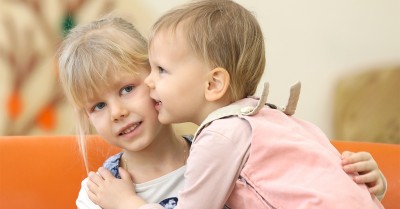

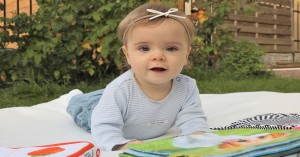


 In Norway and most other Scandinavian countries, children nap in the outdoors. According, to research outdoor sleeping not only promotes better daytime sleeping, but it
In Norway and most other Scandinavian countries, children nap in the outdoors. According, to research outdoor sleeping not only promotes better daytime sleeping, but it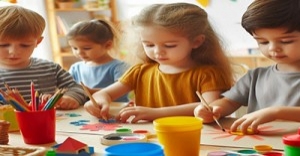 The following article lists 30 art and craft descriptions and links to the EYLF. These can be used as a blurb, during observations, used for
The following article lists 30 art and craft descriptions and links to the EYLF. These can be used as a blurb, during observations, used for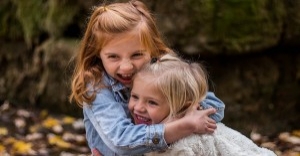 Feel Good Feb is dedicated to saying thanks, expressing gratitude, and promoting good deeds and random acts of kindness.
Feel Good Feb is dedicated to saying thanks, expressing gratitude, and promoting good deeds and random acts of kindness.
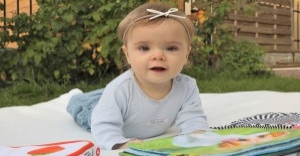 From the earliest months of life, babies thrive when given opportunities to experience the outdoors. Nature is not just a backdrop for play—it is a
From the earliest months of life, babies thrive when given opportunities to experience the outdoors. Nature is not just a backdrop for play—it is a Across the early childhood education and care sector, educators are sounding the alarm: current staffing ratios are insufficient to deliver safe, meaningful, and developmentally appropriate
Across the early childhood education and care sector, educators are sounding the alarm: current staffing ratios are insufficient to deliver safe, meaningful, and developmentally appropriate Thanks to the new National Model Code and upcoming regulatory changes under the National Quality Framework (NQF), early childhood services across Australia must now implement
Thanks to the new National Model Code and upcoming regulatory changes under the National Quality Framework (NQF), early childhood services across Australia must now implement In the quiet hum of a weekday morning, something felt off. Preschool doors opened, but classrooms remained silent. No greetings. No redirection. No educators. And
In the quiet hum of a weekday morning, something felt off. Preschool doors opened, but classrooms remained silent. No greetings. No redirection. No educators. And A: In early childhood education and care (ECEC) settings across Australia, mobile phone use by educators is now subject to strict national reforms aimed at
A: In early childhood education and care (ECEC) settings across Australia, mobile phone use by educators is now subject to strict national reforms aimed at The end of the year is a busy and emotional time in early childhood services. Many services close for a short period over Christmas, and
The end of the year is a busy and emotional time in early childhood services. Many services close for a short period over Christmas, and In early childhood education and care, child safety is not just a number—it’s a practice. While educator-to-child ratios are essential, they are only one part
In early childhood education and care, child safety is not just a number—it’s a practice. While educator-to-child ratios are essential, they are only one part

